
After numerous teaser videos and rumors from Olympus, it's finally taken the wraps off its new flagship mirrorless camera, the OM-D E-M1X.
Olympus believes its latest pro-orientated Micro Four Thirds mirrorless camera delivers enough in terms of industry-leading speed, performance, reliability and high-quality image output to rival full-frame DSLRs (and mirrorless cameras we're guessing).
While built-in vertical grips are nothing new on pro-spec DSLRs like Canon's EOS-1D X Mark II and Nikon's D5, the Olympus OM-D E-M1X is the first mirrorless camera to feature such a design. This is intended to offer a secure grip when shooting portrait-format images, while the improved ergonomics over the E-M1 Mark II see a deeper finger rest for both horizontal and vertical shooting, which is said to reduce fatigue when shooting for long periods of time.
- Read our hands-on Olympus OM-D E-M1X review
Olympus has also overhauled the layout, shape, and height of all buttons, while levers on the OM-D E-M1X have been completely redesigned. Olympus reckons this will allow users to concentrate on shooting through the viewfinder, with a multi-selector included in both the horizontal and vertical positions to enable a seamless transition from vertical to horizontal shooting, while there's also a new C-LOCK lever. This allows the photographer to select and disable numerous buttons and dials on the camera when in the vertical or horizontal position, which Olympus says is intended to mitigate the risk of accidental changes to settings.
Tough and durable
The OM-D E-M1X is dust-proof, splash-proof, and freeze-proof (to 14°F / -10°C), even if you're using a remote cable, microphone or headphone jack, according to Olympus, while a new coating is used on the Super Sonic Wave Filter in front of the sensor that vibrates at 30,000 times per second to remove dust and dirt.
The construction of the OM-D E-M1X is designed to dissipate heat when shooting video and during high-speed shooting in hot conditions, while the shutter life has been tested up to an impressive 400,000 actuations.
Image stabilization up to 7 stops
The OM-D E-M1X sports a new gyro sensor that supports an in-body image stabilization system that compensates up to an impressive seven stops – and if you're using the camera in tandem with the stabilized M.Zuiko Digital ED 12-100mm f/4.0 IS PRO lens, this increases to a class-leading 7.5 stops.
Get daily insight, inspiration and deals in your inbox
Sign up for breaking news, reviews, opinion, top tech deals, and more.
Olympus has also overhauled the electronic viewfinder on the OM-D E-M1X, with a industry-leading magnification of 0.83x (35mm equivalent). This four-element configuration, designed with aspherical and high reflective index lenses, promises to provide a clear, distortion-free display right up to the edge of the viewfinder.
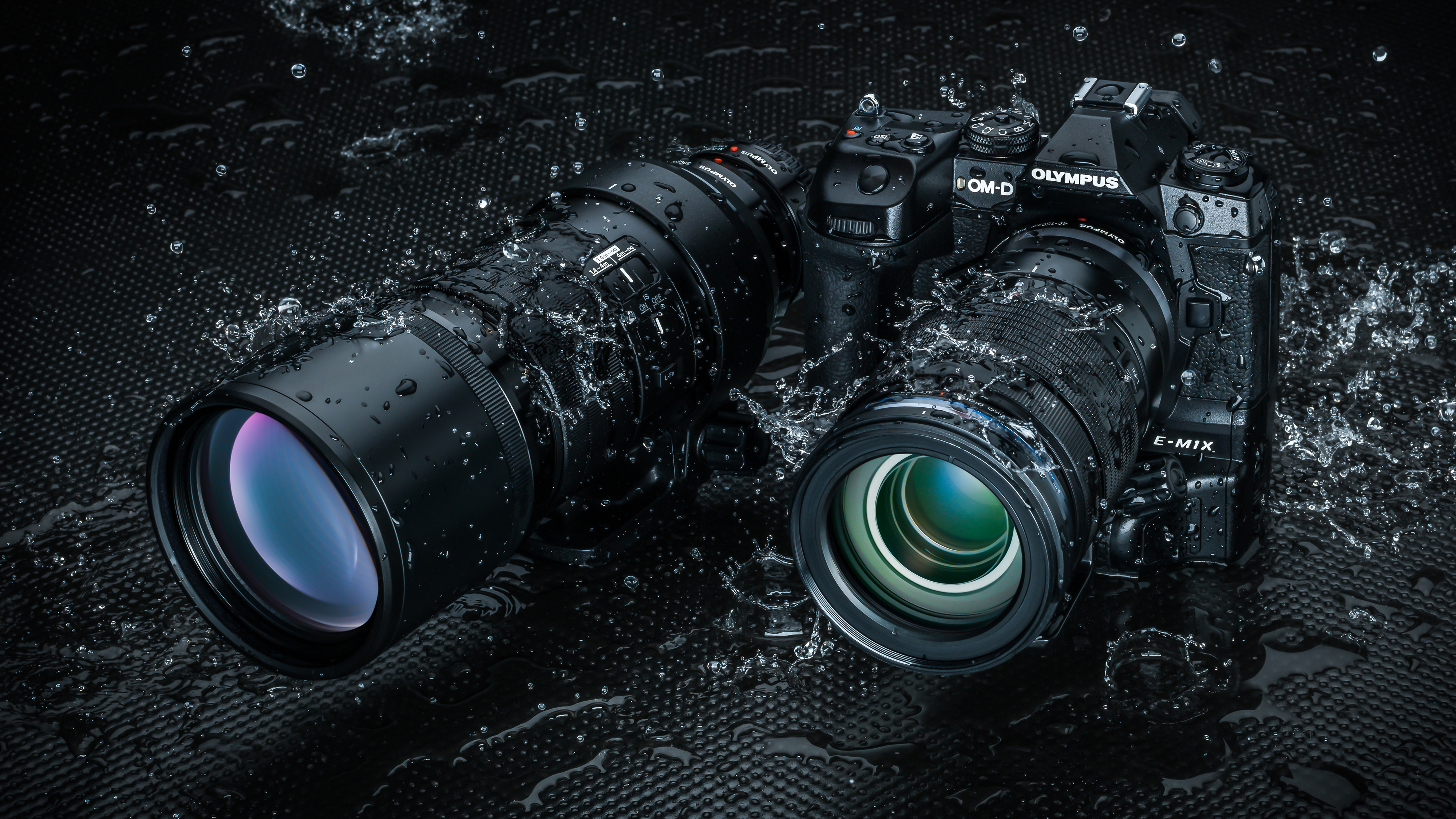
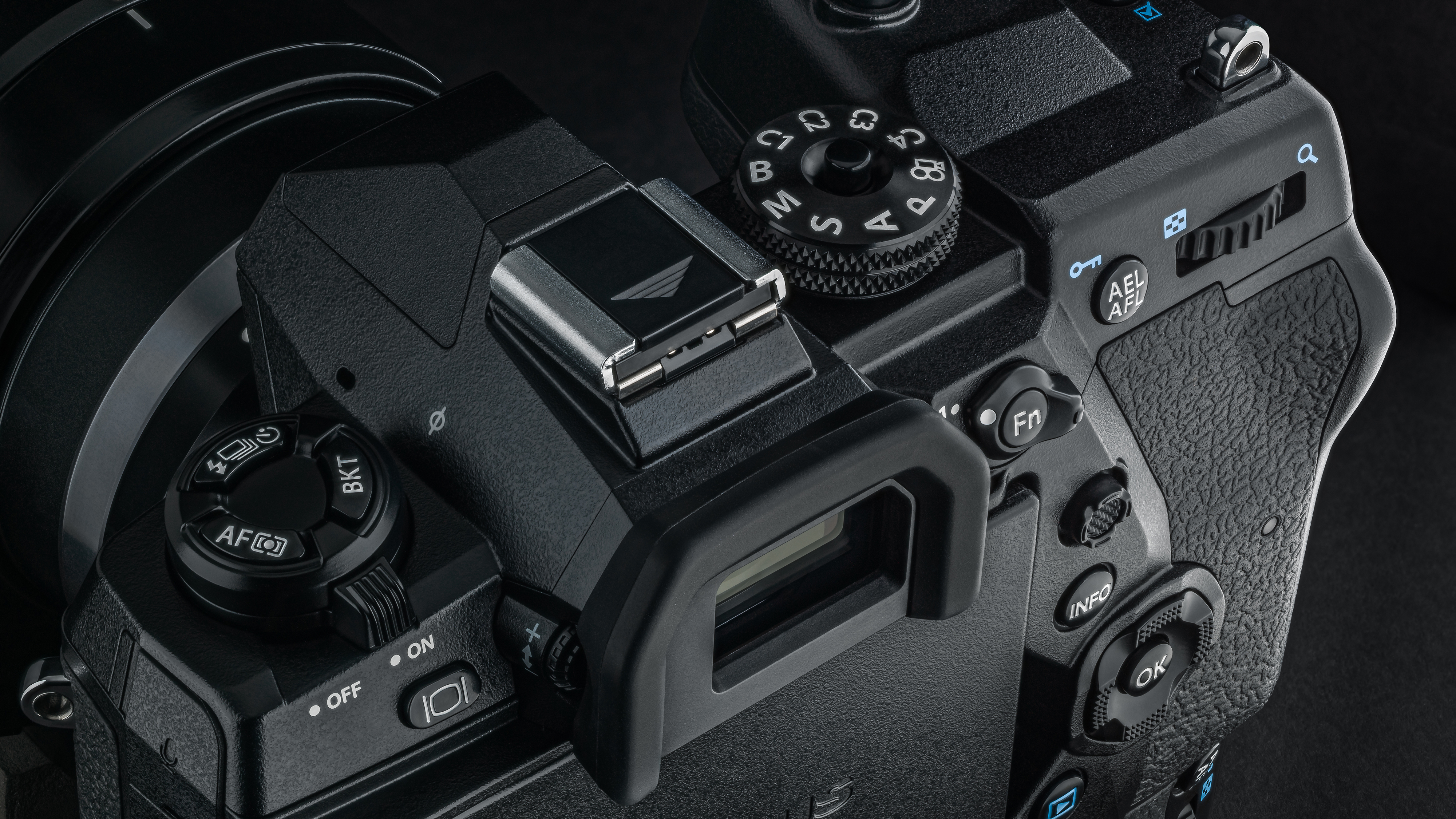
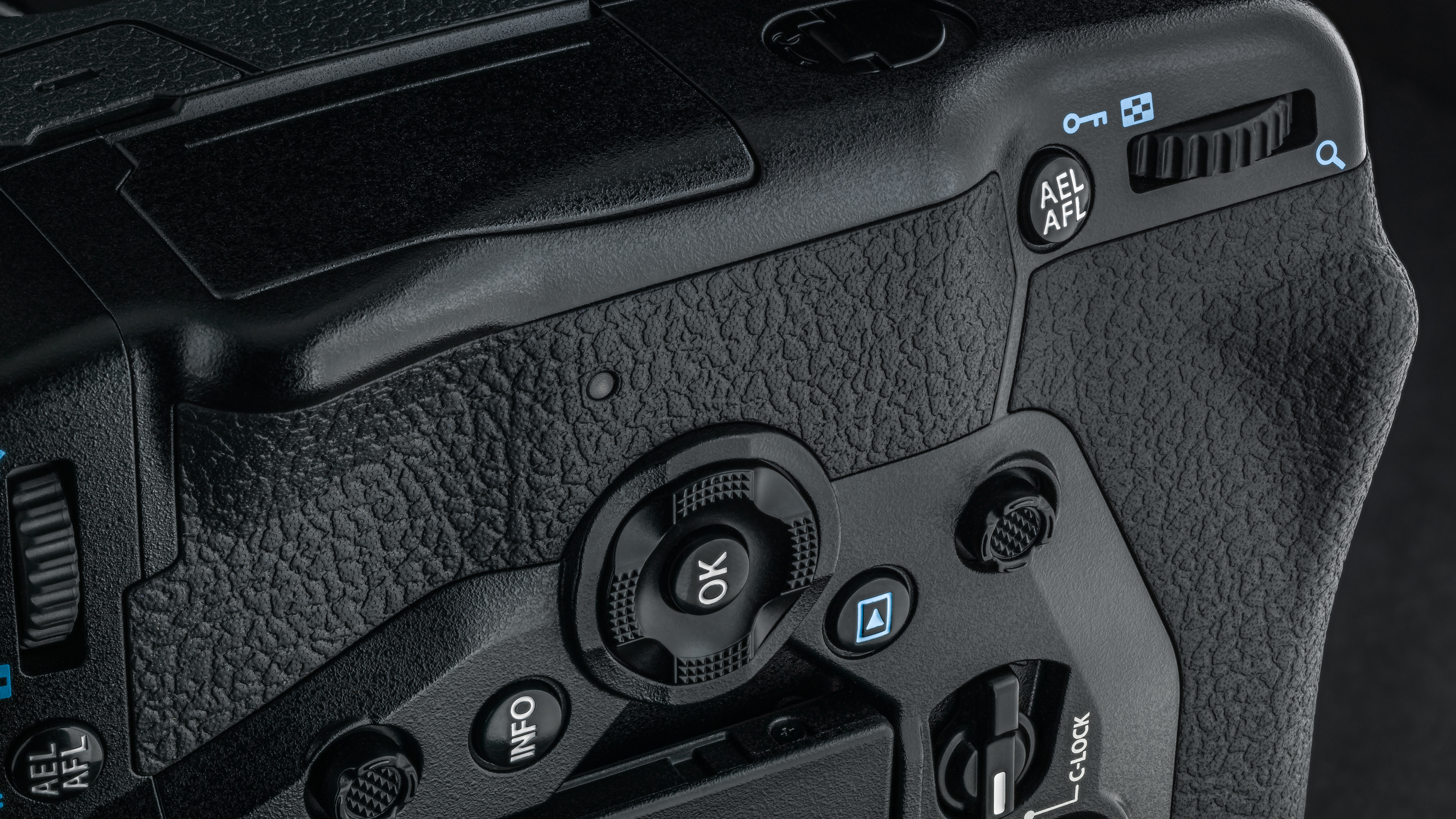
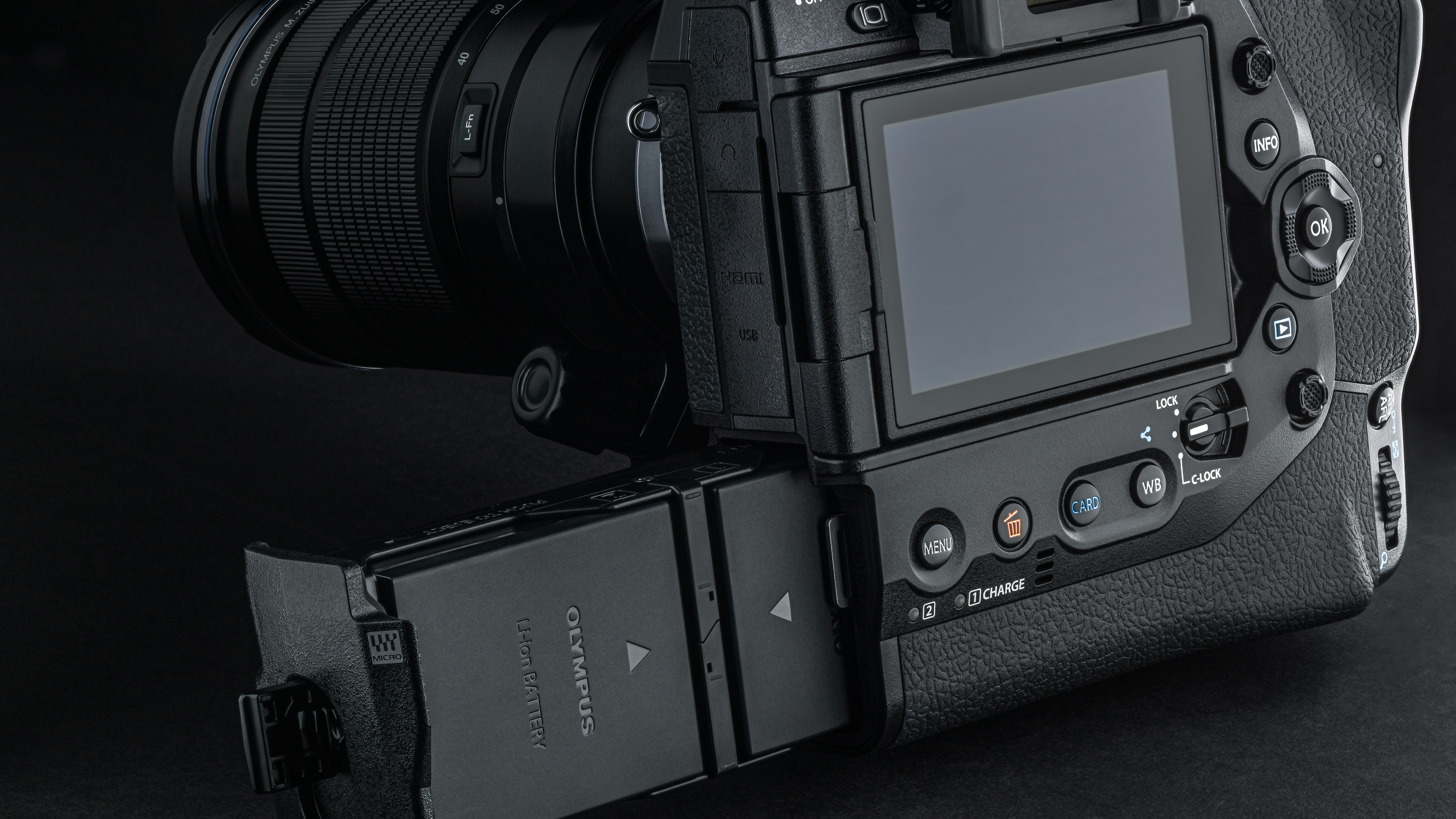
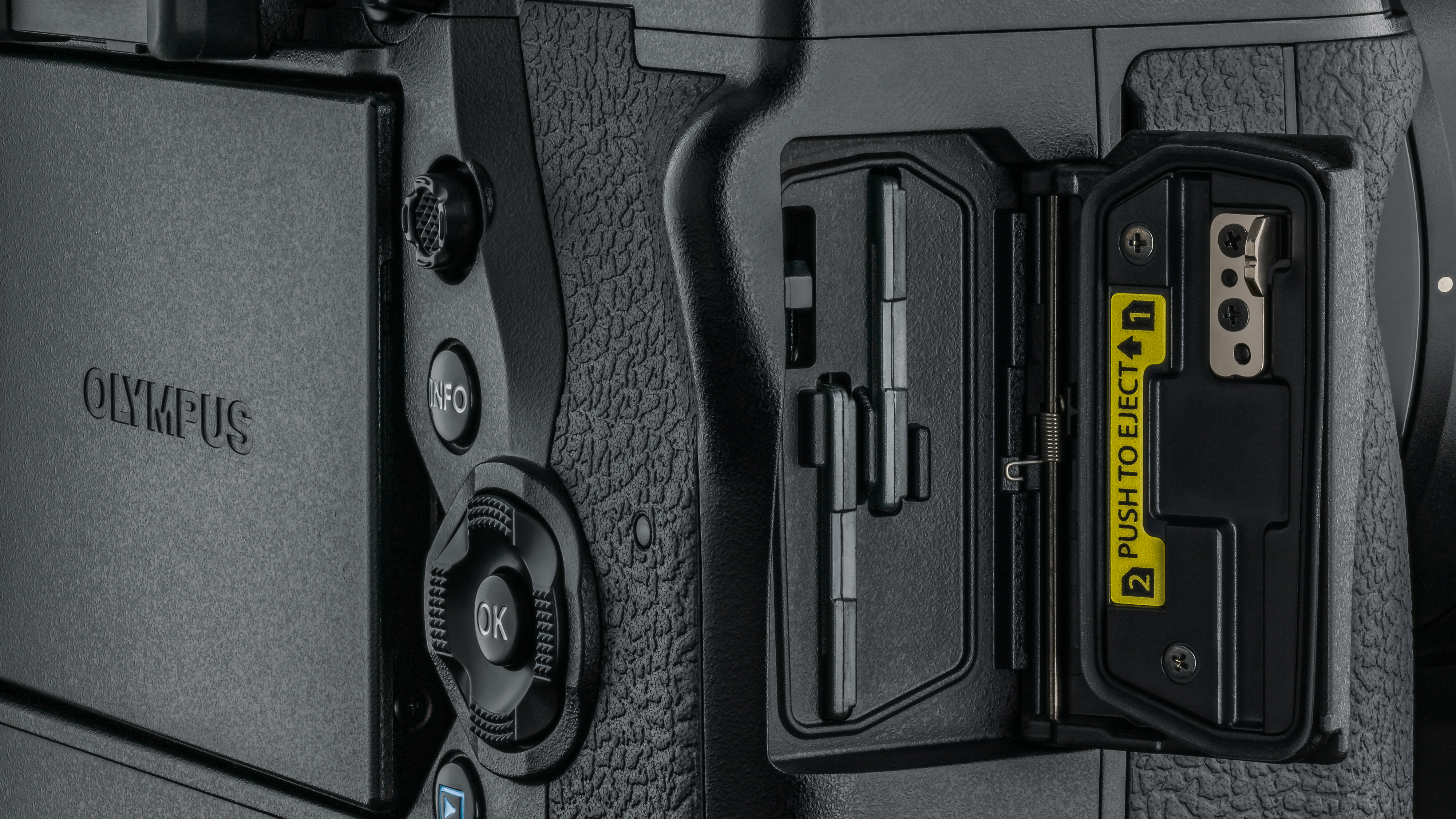
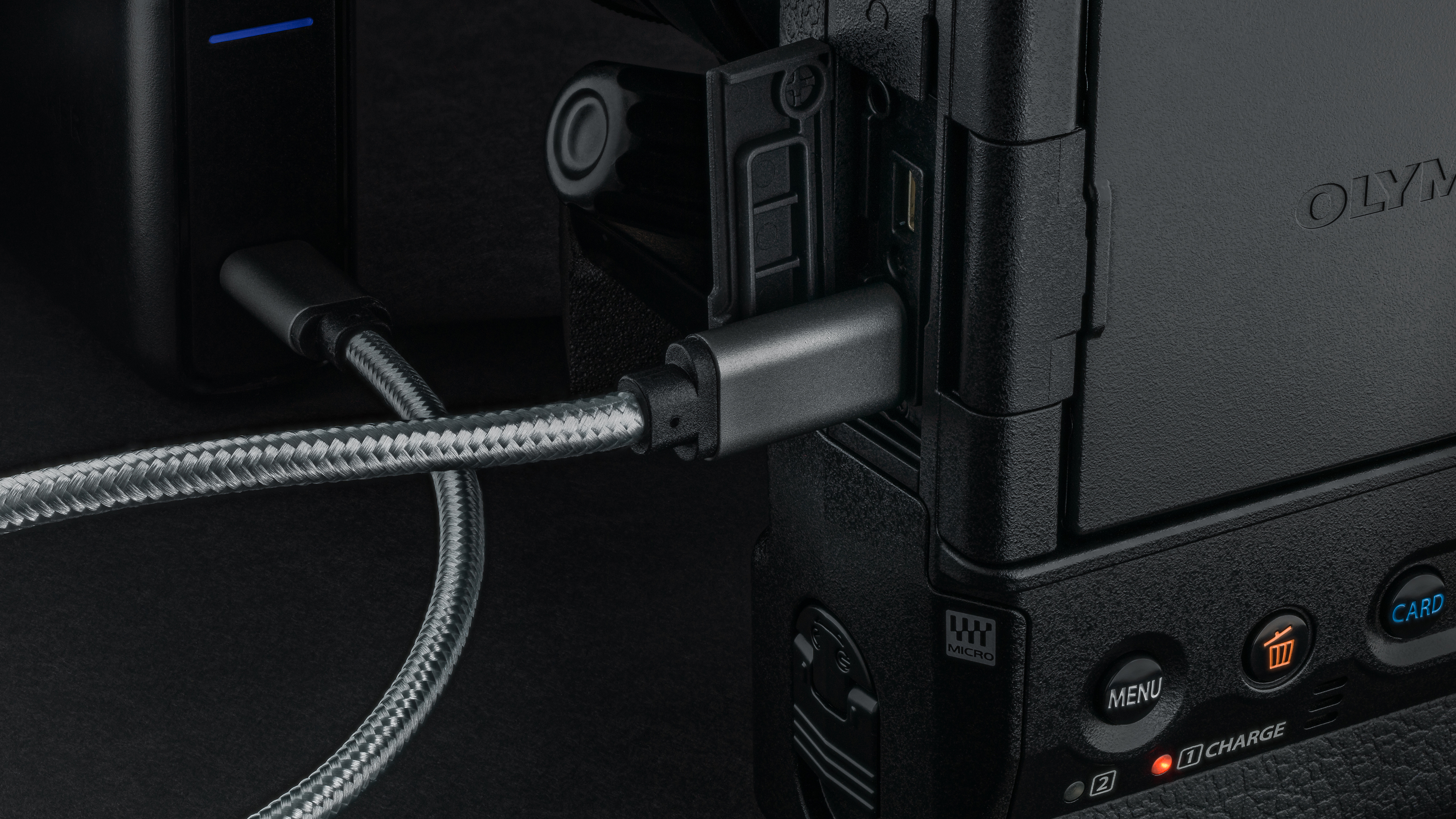
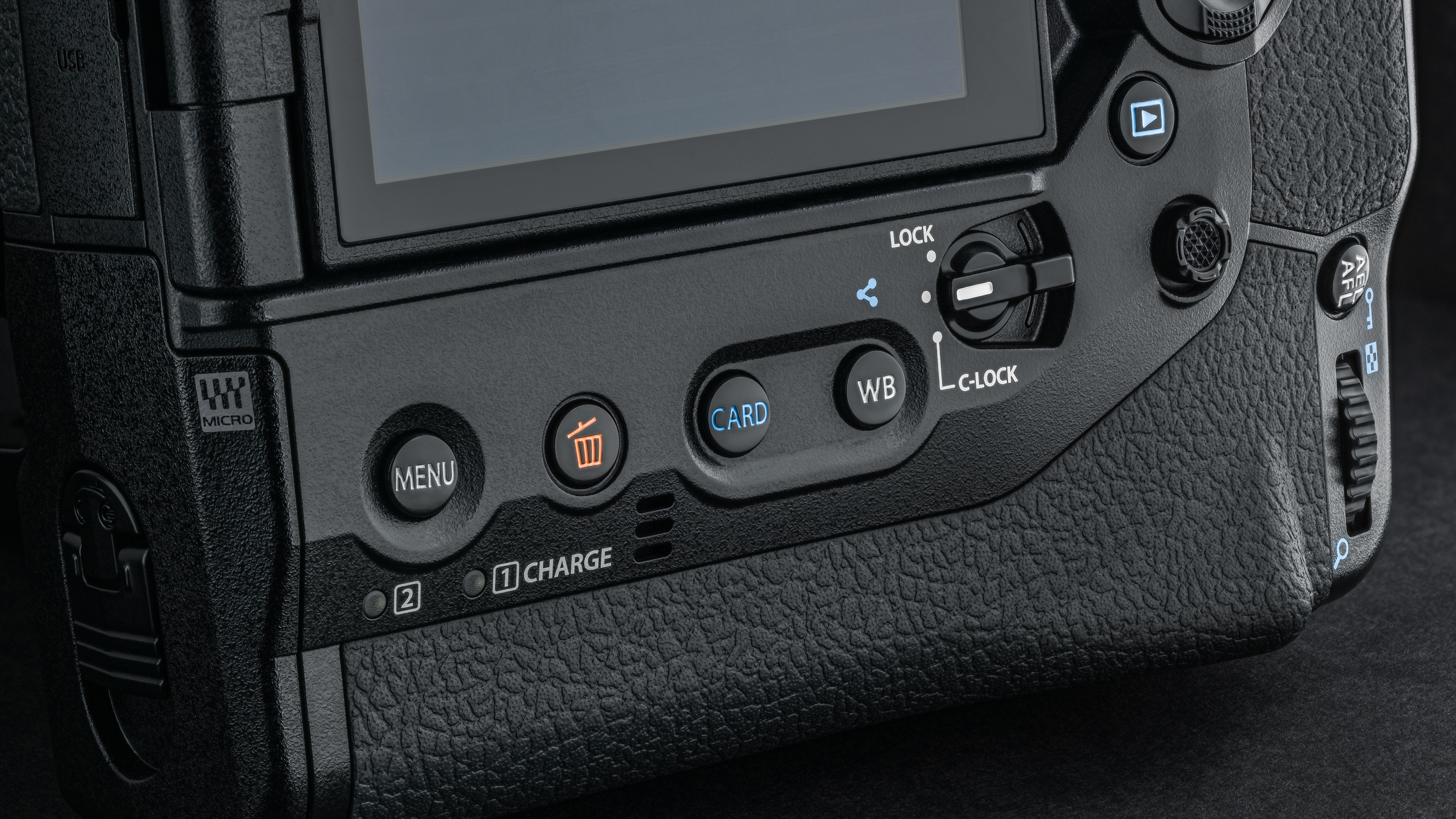
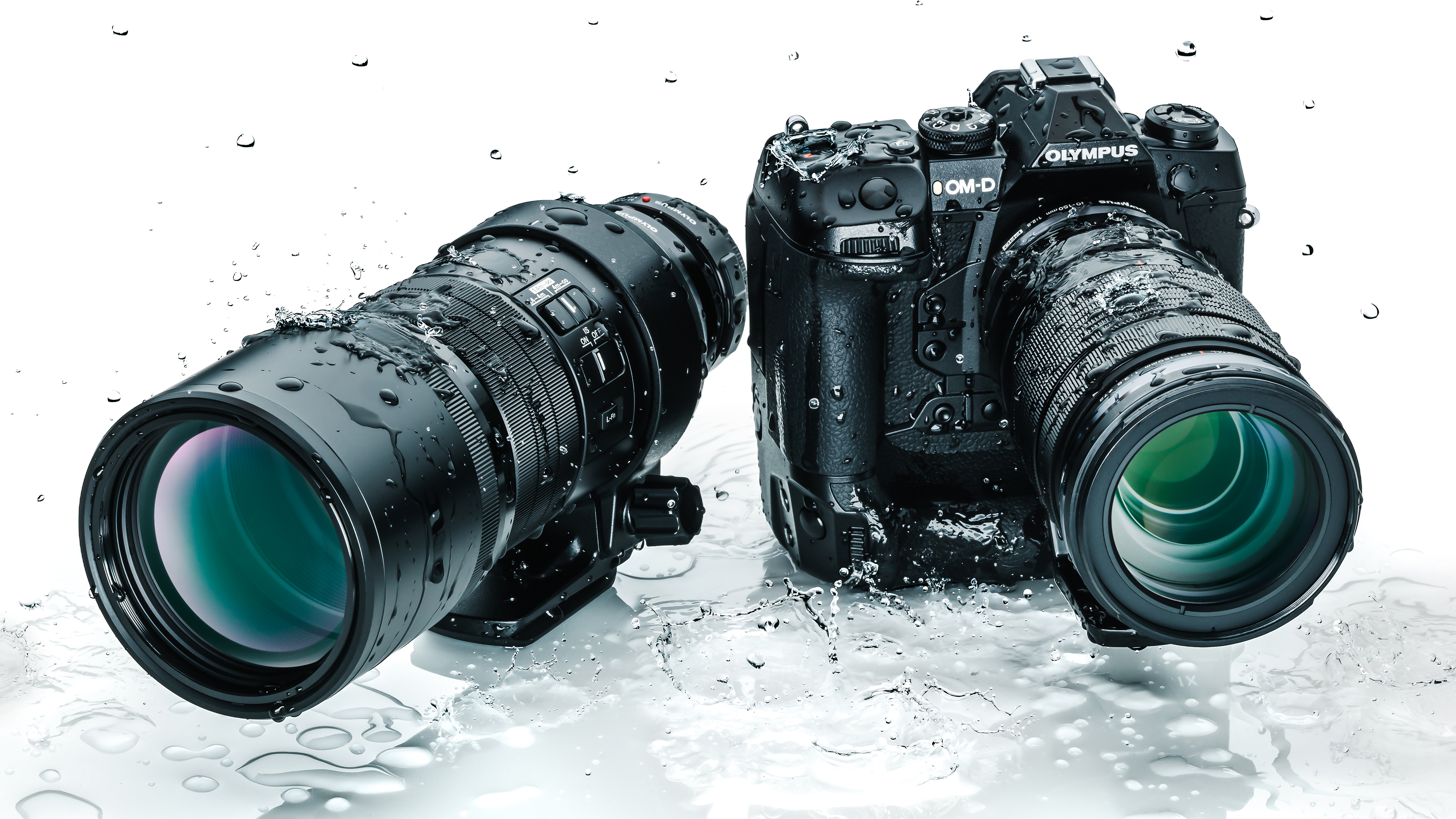

Up to 60fps burst shooting
The OM-D E-M1X is capable of shooting at up to a blistering 60fps, although this is with both autofocus and auto exposure locked at the first shot; if you're looking to track a subject the maximum speed is still a very quick 18fps. Both of these drive speeds are also supported for silent shooting should you wish.
Olympus has refined the 121-point all cross-type on-chip phase-detect AF sensor that's used by the OM-D E-M1 Mark II, making a number of improvements.
As you'd expect for a camera aimed at pros, there are various autofocus settings available. These include multiple AF Target Modes and AF area position settings (when holding the camera vertically or horizontally), while Olympus has added new 25-Point Group Target and Custom AF Target options.
The OM-D E-M1X takes advantage of a new intelligent subject-detection feature, with the AF system automatically detecting subjects, and automatically adjusting focusing and tracking for optimal performance depending on the subject being shot.
What about the sensor? Olympus hasn't made a song and dance about this, but the OM-D E-M1X uses a 20.4MP Micro Four Thirds sensor. As on the E-M1 Mark II there's an Ultra High Res mode that captures 80MP files (with a tripod), while Olympus has added a Handheld High Res Shot Mode to the OM-D E-M1X, which outputs files at 50MP.
Built-in neutral density filters
If you don't want to lug a set of neutral density filters round with you, the good news is that the OM-D E-M1X features a Live ND mode. This works by combing multiple exposed images in camera to attain slow shutter effects, while it's also possible to check the slow shutter effects in the viewfinder before shooting for improved efficiency. Live ND has five levels: ND2 (equivalent to one shutter speed step), ND4 (2 steps), ND8 (3 steps), ND16 (4 steps), and ND32 (5 steps).
The Olympus OM-D E-M1X will be available at the end of February priced at $2,999.99 / £2,799 / AU$4,499.
Phil Hall is an experienced writer and editor having worked on some of the largest photography magazines in the UK, and now edit the photography channel of TechRadar, the UK's biggest tech website and one of the largest in the world. He has also worked on numerous commercial projects, including working with manufacturers like Nikon and Fujifilm on bespoke printed and online camera guides, as well as writing technique blogs and copy for the John Lewis Technology guide.
